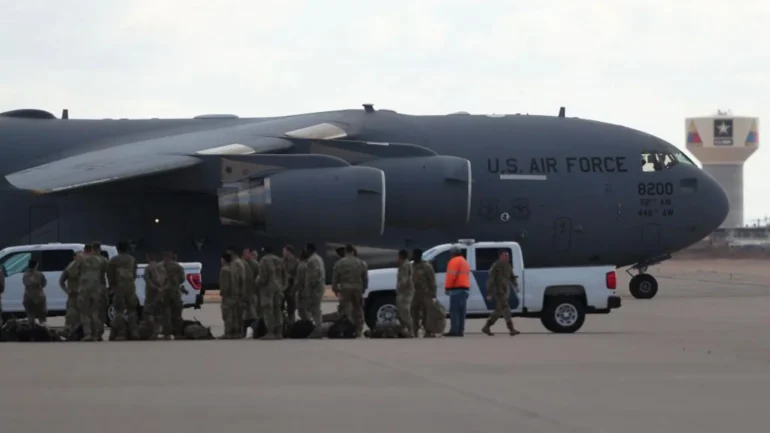On August 31, 2025, U.S. District Court Judge Sparkle Sooknanan issued an emergency order to temporarily block the Trump administration from deporting approximately 600 unaccompanied Guatemalan children. This decision came after reports surfaced that the government was preparing to send these children, aged 10 to 17, back to Guatemala, potentially putting them at risk of abuse, neglect, or persecution. The order, effective for 14 days, was issued in response to a lawsuit filed by immigrant advocacy groups, including the National Immigration Law Center (NILC), which argued that the deportations violated federal laws protecting unaccompanied minors.
The legal action began early Sunday when advocacy groups sought an emergency injunction, claiming the Trump administration was attempting to deport the children without proper legal notice or the opportunity to pursue immigration claims. Initially, Judge Sooknanan, a former nominee of President Joe Biden, issued a temporary restraining order to stop the deportation of 10 specific children. However, after learning that planes were already prepared to take off from Texas with hundreds of children on board, she expanded the order to cover all unaccompanied Guatemalan children in U.S. custody without a deportation order. During a quickly arranged hearing, she confirmed with Justice Department lawyer Drew Ensign that all planes were grounded and the children were being returned to the custody of the Department of Health and Human Services (HHS), which oversees unaccompanied minors in shelters or foster homes.
The Trump administration, represented by Ensign, argued that the effort was not a deportation but a “repatriation” to reunite the children with their families in Guatemala, as requested by the Guatemalan government and the children’s relatives. However, lawyers for the children disputed this, citing cases where parents had not requested repatriation and emphasizing that some children had pending immigration cases. They argued that the Trafficking Victims Protection Reauthorization Act protects unaccompanied minors from non-Mexican countries, granting them the right to see an immigration judge and apply for legal protections, such as asylum, before any deportation. The lawyers also raised concerns that returning these children to Guatemala could expose them to harm, as many had fled violence, abuse, or trafficking.
Efrén C. Olivares, vice president of litigation at the NILC, condemned the administration’s actions, stating, “In the dead of night on a holiday weekend, the Trump administration ripped vulnerable, frightened children from their beds and attempted to return them to danger in Guatemala.” He praised the court’s intervention, noting it prevented “irreparable harm” to the children. Similarly, Lindsay Toczylowski of the Immigrant Defenders Law Center emphasized that many of these children have expressed fear of returning to Guatemala and have a legal right to seek safety in the U.S.
The Trump administration’s actions reflect its broader immigration crackdown, a key promise of President Trump’s second term. Since taking office, the administration has pursued aggressive deportation policies, including making it harder for undocumented relatives to sponsor unaccompanied minors and conducting “welfare checks” on children released from HHS custody. White House advisor Stephen Miller criticized the judge’s ruling, claiming on X that the children’s parents were in Guatemala and wanted reunification, accusing the judge of blocking family reunification.
Guatemala’s President Bernardo Arevalo also opposed the ruling, arguing that the children were being repatriated under a pilot program he proposed to President Trump. However, advocates like Gladys Hernandez from the Young Center’s Child Advocate Program reported that some children were woken up in the middle of the night, confused and terrified, as they were told to prepare for deportation.
The court has scheduled a follow-up hearing for September 10, with the NILC required to file a motion for a preliminary injunction by Tuesday and the Trump administration to respond by Friday. Legal experts, such as Carl Tobias from the University of Richmond, have called the administration’s rushed deportation efforts “troubling,” noting similarities to a March case where deportations proceeded despite a judicial order. Tobias questioned the administration’s claim that parents requested repatriation, pointing out the lack of evidence compared to the plaintiffs’ documentation of risks to the children.
This case highlights the ongoing tension between the Trump administration’s immigration policies and legal protections for unaccompanied minors, many of whom are Central American teenagers seeking asylum or other immigration benefits in the U.S. As the legal battle continues, the fate of these children remains uncertain, with advocates vowing to fight for their right to safety and due process.
